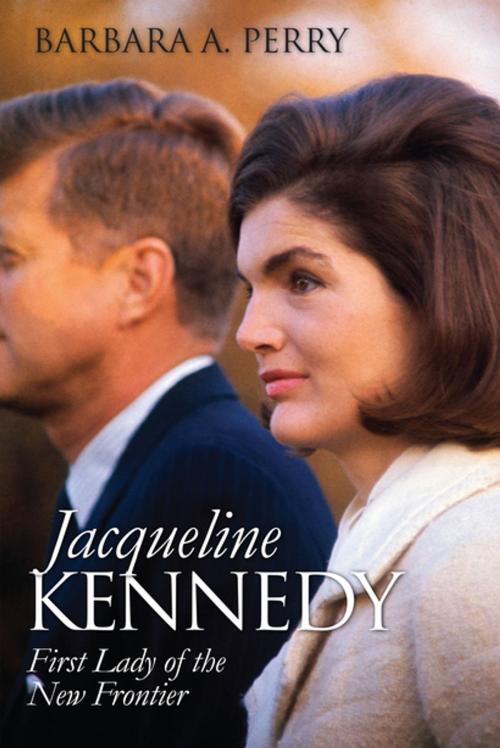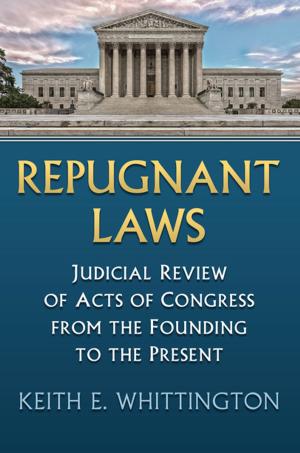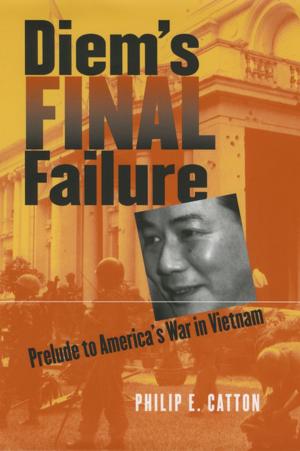Jacqueline Kennedy
First Lady of the New Frontier
Nonfiction, Social & Cultural Studies, Social Science, Gender Studies, Women&, History, Americas, United States, 20th Century, Biography & Memoir, Political| Author: | Barbara A. Perry | ISBN: | 9780700628070 |
| Publisher: | University Press of Kansas | Publication: | April 1, 2019 |
| Imprint: | University Press of Kansas | Language: | English |
| Author: | Barbara A. Perry |
| ISBN: | 9780700628070 |
| Publisher: | University Press of Kansas |
| Publication: | April 1, 2019 |
| Imprint: | University Press of Kansas |
| Language: | English |
In a mere one thousand days, Jacqueline Bouvier Kennedy created an entrancing public persona that has remained intact for more than a half-century. Even now, long after her death in 1994, she remains a figure of enduring—and endearing—interest. Yet, while innumerable books have focused on the legends and gossip surrounding this charismatic figure, Barbara Perry’s is the first to focus largely on Kennedys’ White House years, portraying a First Lady far more complex and enigmatic than previously perceived.
Noting how Jackie’s celebrity and devotion to privacy have for years precluded a more serious treatment, Perry’s engaging and well-crafted story illuminates Kennedy’s immeasurable impact on the institution of the First Lady. Perry vividly illustrates the complexities of Jacqueline Bouvier’s marriage to John F. Kennedy, and shows how she transformed herself from a reluctant political wife to an effective, confident presidential partner. Perry is especially illuminating in tracing the First Lady’s mastery of political symbolism and imagery, along with her use of television and state entertainment to disseminate her work to a global audience.
By offering the White House as a stage for the arts, Jackie also bolstered the president’s Cold War efforts to portray the United States as the epitome of a free society. From redecorating the White House, to championing Lafayette Square’s preservation, to lending her name to fund-raising for the National Cultural Center, she had a profound impact on the nation’s psyche and cultural life. Meanwhile, her fashionable clothes and glamorous hairdos stood in stark contrast to the dowdiness of her predecessors and the drab appearances of Communist leaders’ spouses.
Never before or since have a First Lady (and her husband) sparkled with so much hope and vigor on the stage of American public life. Perry’s deft narrative captures all of that and more, even as it also insightfully depicts Jackie’s struggles to preserve her own identity amid the pressures of an institution she changed forever.
Grounded on the author’s painstaking research into previously overlooked or unavailable archives, at the Kennedy Library and elsewhere, as well as interviews with Jacqueline Kennedy’s close associates, Perry’s work expands and enriches our understanding of a remarkable American woman.
In a mere one thousand days, Jacqueline Bouvier Kennedy created an entrancing public persona that has remained intact for more than a half-century. Even now, long after her death in 1994, she remains a figure of enduring—and endearing—interest. Yet, while innumerable books have focused on the legends and gossip surrounding this charismatic figure, Barbara Perry’s is the first to focus largely on Kennedys’ White House years, portraying a First Lady far more complex and enigmatic than previously perceived.
Noting how Jackie’s celebrity and devotion to privacy have for years precluded a more serious treatment, Perry’s engaging and well-crafted story illuminates Kennedy’s immeasurable impact on the institution of the First Lady. Perry vividly illustrates the complexities of Jacqueline Bouvier’s marriage to John F. Kennedy, and shows how she transformed herself from a reluctant political wife to an effective, confident presidential partner. Perry is especially illuminating in tracing the First Lady’s mastery of political symbolism and imagery, along with her use of television and state entertainment to disseminate her work to a global audience.
By offering the White House as a stage for the arts, Jackie also bolstered the president’s Cold War efforts to portray the United States as the epitome of a free society. From redecorating the White House, to championing Lafayette Square’s preservation, to lending her name to fund-raising for the National Cultural Center, she had a profound impact on the nation’s psyche and cultural life. Meanwhile, her fashionable clothes and glamorous hairdos stood in stark contrast to the dowdiness of her predecessors and the drab appearances of Communist leaders’ spouses.
Never before or since have a First Lady (and her husband) sparkled with so much hope and vigor on the stage of American public life. Perry’s deft narrative captures all of that and more, even as it also insightfully depicts Jackie’s struggles to preserve her own identity amid the pressures of an institution she changed forever.
Grounded on the author’s painstaking research into previously overlooked or unavailable archives, at the Kennedy Library and elsewhere, as well as interviews with Jacqueline Kennedy’s close associates, Perry’s work expands and enriches our understanding of a remarkable American woman.















